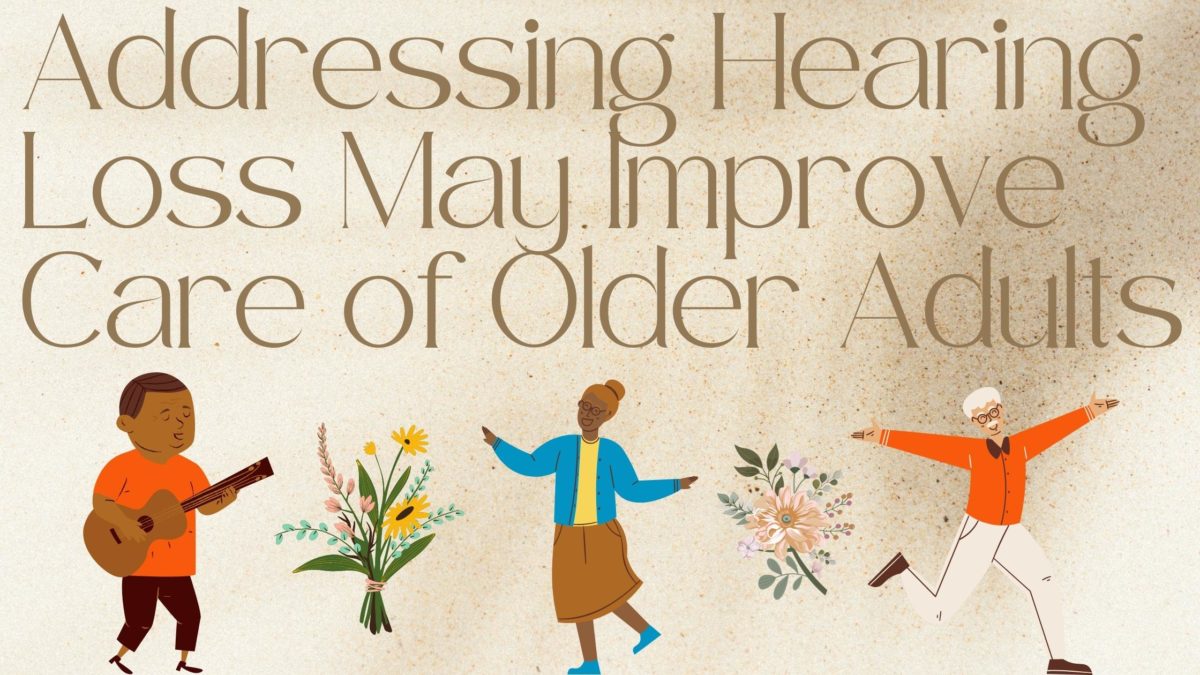Healthcare environments employ the most up-to-date science, research, and technology to assist people in becoming and being healthy. With so much emphasis on data and experimentation, the human element of caregiving might seem less important.
On the contrary – interpersonal relationships appear to be a key metric of care quality in study after study. Patients not only express greater happiness with their interactions with healthcare professionals and are more likely to return to the hospital for follow-up and future visits, but their physical health is also better quantitatively.
With the human element of healthcare becoming increasingly important, we may pay greater attention to what makes interacting with a doctor, nurse, or caregiver a positive experience. It’s not enough to find someone who is pleasant and likable. Patients must have faith in the amount of communication they can achieve with their carers.
Untreated hearing loss is one of the potential hurdles to that communication. Conversations can become challenging to navigate when a person does not have good hearing abilities in a healthcare setting. Consider when and where a hearing loss can arise, as well as what accommodations might be available to help.
Individuals in health care institutions or people seeking medical treatment, according to studies, frequently have untreated hearing loss. Experts have found that correcting their hearing loss and making hearing testing a regular admission practice would significantly improve care.
Hearing Loss in Older Adults
Hearing loss is on the rise, and it is currently the fourth most significant cause of global disability. According to the World Health Organization, hearing loss affects about a third of the global population over 65 or around 32 percent. However, it has been discovered that when treating older adults, medical staff tend to neglect their hearing loss.
Hearing loss makes it difficult for people to grasp what is being said to them and the consequences of their treatment options. Beeping alarms and machine noise, competing with conversations from the opposite bed, and poor sound insulation in private rooms all contribute to a chaotic medical care environment.
Hearing loss is a problem with sound processing, not with sound itself. When the environment is ideal, people with mild to moderate age-related hearing loss can hear sound and understand what is being said. A room with little competing ambient sound and a speaker immediately facing them, talking to them, would be ideal. When the speaker is turned away, or there are many speakers, comprehension suffers.
Consider a hospital room: a doctor talking to a patient while staring at a chart, a nurse responding to notes, machines running, the television on, and perhaps a patient in the adjacent bed conversing to a cousin or friend. Even for people who have excellent hearing, there is the potential to receive inaccurate information.
How medical staff treat patients who also have a hearing loss
Individuals with hearing loss sometimes complain that medical professionals lack empathy and compassion for hearing loss. They believe that individuals in the medical profession are unaware of how difficult it is for a patient to grasp and follow a conversation about medical care and options.
According to studies, doctors visit hard of hearing patients less frequently and spend less time in their rooms when they do. Hard-of-hearing patients are commonly readmitted for treatment after being discharged from a medical facility because they may not have comprehended aftercare and pain management instructions entirely.
According to the American Family Physician Journal, family physicians for elderly patients should ensure that if they recommend treatment at a medical facility for their patients, their chart is flagged with the information that they have hearing issues and that proper communication is taken with them.
According to the author, it is beneficial if the attending physician discusses the best communication choice for patients and their families. It may be necessary to scribble notes or type into a device. A sign language interpreter may be required for the patient.
A few tips could immediately improve communication between patients and medical personnel. If a family member communicates with the patient better than others, they can be used as a go-between. It could be as simple as chatting to the patient while facing them, shutting off the television, and toning down the background noise. It could be beneficial to have the patient repeat what they’ve just learned.
Hearing loss is aggravating, and the technology behind hearing aids can be perplexing. We’re ready to guide you through the maze of technology so you can choose hearing aids that are right for you and your lifestyle.

